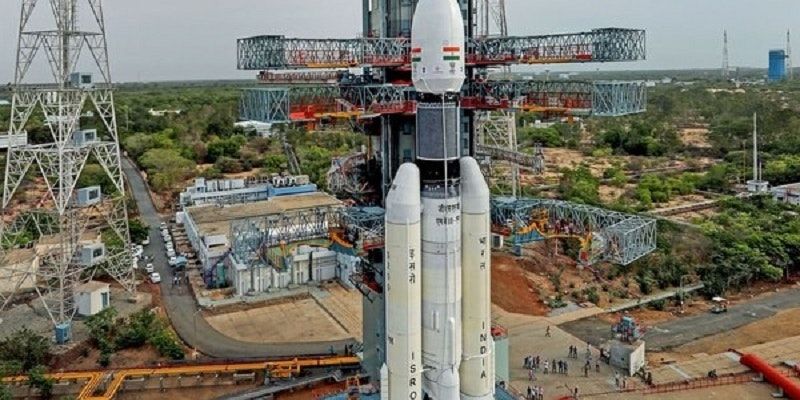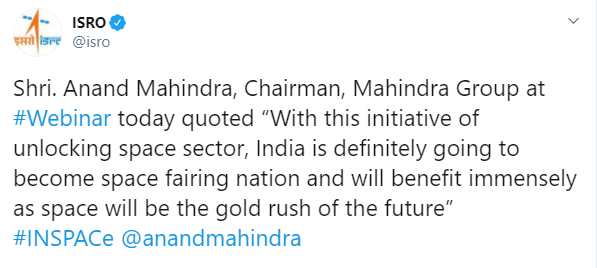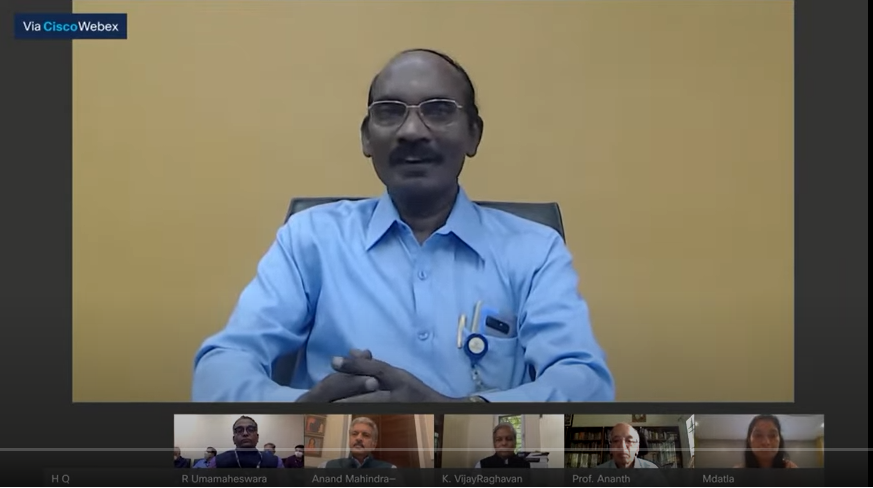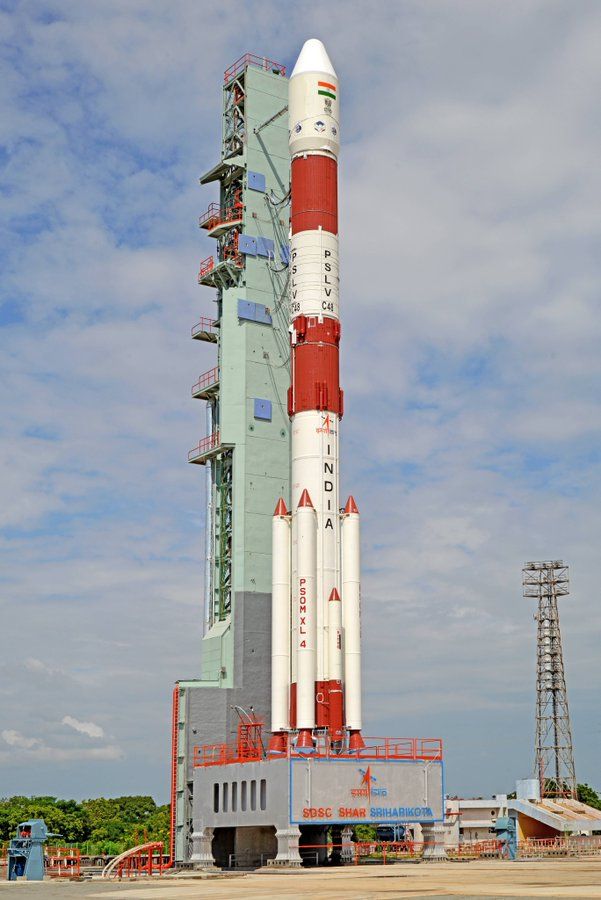
Parts of the Nike-Apache rocket being carried on a bicycle towards the launch site were the first steps towards the establishment of the Indian Space Research Organisation (ISRO) by Vikram Sarabhai on August 15, 1969.
Spacetech developments have come a long way in India. It was in 1963 when India’s rocket science began its historical journey on a bicycle and a bullock cart. Dr Vikram Sarabhai, along with his colleagues including Dr APJ Abdul Kalam, built NASA’s Nike-Apache sounding rocket in India and launched it from a village called Thumba in Thiruvananthapuram (then Trivandrum). The parts of the rocket being carried on a bicycle towards the launch site were the first steps towards the establishment of the Indian Space Research Organisation (ISRO) by Vikram Sarabhai on August 15, 1969.
Since then, ISRO has focussed on taking the Indian space technology to new heights. Till date, the space agency has conducted notable space missions such as Chandrayaan-1 in 2008, Mars Orbiter Mission or Mangalyaan in November 2013, Chandrayaan-2 in 2019, and is now looking to launch its crewed orbital spacecraft Gaganyaan in December 2021, which will carry three Indian astronauts to the Earth’s orbit on a seven day mission.
With India adopting technology, several private players, startups, innovators, and students have taken keen interest in developing the Indian spacetech sector. Identifying the growing interest of private players in exploring space technology, ISRO is now welcoming the idea of private-public partnership to explore the space.
Earlier in May, media reports revealed that ISRO has been inviting startups to come up with solutions related to food and medicine for astronauts, green engine, better tools for accessing the machines in spacecraft for its maiden human space flight, Gaganyaan-1. At the same time, ISRO also revealed that a consortium of companies led by Larson & Toubro and HAL are working with the agency to build its own polar satellite launch vehicle (PSLV).
Realising the potential of the future space technology, Finance Minister Nirmala Sitharaman in May announced the inclusion of private players in the space sector. Later, in June, the Union Cabinet announced the formation of an autonomous nodal agency, Indian National Space Promotion and Authorisation Centre (IN-SPACe), an extension of ISRO, which is aimed at including private players in space related activities.
Clarifying the new norms announced by the central government, ISRO Chairman K Sivan, who is also the Secretary in the Department of Space (DoS), dispelled rumours and said that the Indian space agency will not be privatised.
Clearing up the speculations that emerged after the central government introduced new reforms in the space sector, he said the reforms are not aimed at privatisation of ISRO, but it is for the inclusion of private players and allowing them to take up space activities, which till date was only done by the government organisation.
While addressing the audience during ISRO’s online webinar - ‘Unlocking of India’s Potential in Space Sector’, Sivan said, these reforms “will be critical for not just India's growth, but for the space sector around the world. This sector will grow in all dimensions to provide services to customers, and India should be at the forefront of that revolution.”
He also said that with communication satellites, including GSAT 7R, GSAT-6 Satellite Terminals and Communication Satellite GSAT-7C embargoed under ‘Aatmanirbhar Bharat Abhiyan’, it provides a big opportunity for ISRO and other private players to build their own satellites.

Chandrayaan-2 completed one year on moon orbit on August 20,2020. File photo
Public private partnership
According to a report by Research and Markets, the global space industry stood at $360 billion in 2018, and is projected to grow at a CAGR of 5.6 percent to reach $558 billion by 2026. According to a report by Euroconsult, the number of satellites is expected to rise to 7,000 in Earth’s orbit by 2027.
While ISRO has been at the forefront for driving the space sector, several startups such as Pixxel, Bellatrix Aerospace, TeamIndus, Dhruva Space, and Astrome among others have been working in this space.
During the webinar, R Umamaheswaran, Scientific Secretary, ISRO, explained that at present the Department of Space is responsible for carrying out end-to-end space activities in the country, including “design, development, and realisation of launch vehicles and spacecraft, launch and post-launch activities, and space-based services.”
He explained that private players are interested in making launch vehicles, satellites, and also provide space-based services. This participation from the private sector, including startups and academia, among others, is believed to expand the space sector in the country, he added.
According to the reforms announced by the central government in June, private players are now allowed to carry out end-to-end activities such as providing space-based services, designing satellites, and launch vehicles using a suitable enabling mechanism.
“The importance of collaboration between academia, research organisations, and industries are well established, and can be used as drivers to bring the desired outcome from the proposed space sector reforms,” said Prof MS Ananth, Former Director, IIT-Madras.
Speaking about the collaboration, Mahima Datla, Managing Director of Biological E. Ltd, a Hyderabad-based biopharmaceutical company, said, the complexities of launching a vaccine can be compared with rocket launch. “The experience of partnership established in vaccine industries can be adopted in the space sector,” she added.

According to recent media reports, ISRO is already receiving interests and queries from the startup ecosystem for projects related to satellite making and service providing among others.
Apart from collaboration with businesses, ISRO also helps and guides educational institutions and student teams innovating in this space. The space agency, for instance, works with Team VSLV of Veer Surendra Sai University of Technology (VSSUT), Odisha, who are building a PICOSAT and a satellite launching vehicle for deploying satellites for monitoring the famed Hirakud Dam.
In January 2019, ISRO announced the establishment of the nation’s first and exclusive innovation centre in VSSUT campus, which will include all the facilities required for the development of rockets and satellites and the students will also be able to learn from ISRO scientists.
Last year, at the sixth edition of Deftronics and second edition of Spacetronics India Electronics and Semiconductor Association (IESA), AS Kiran Kumar, former Director, ISRO, had said, “Space as a new frontier is attracting the attention of a large number of entrepreneurs from across the world. Today, companies are sending cargos to the International Space Station and very soon plan to send humans to planetary bodies."

K Sivan, Chairman of ISRO, said that new space reforms are not aimed at privatisation of ISRO, but it is for the inclusion of private players and allowing them to take up space activities.
Role of IN-SPACe
According to Umamaheswaran, nodal agency IN-SPACe will be responsible for monitoring the private players, and will also be involved in the “promotion and handholding of industries, building launch vehicles and satellites, sharing ISRO facilities, establishing several facilities such as launch pad inside the DoS premises, and monitor space-based services.”
Apart from this, IN-SPACe will also be responsible for coming up with an ‘Integrated Launch Manifest’, which will set boundaries between the private players, ISRO, and NewSpace India Limited (NSIL), the commercial arm of ISRO. The nodal agency will also be responsible for solving conflict of interest between the three bodies.
Meanwhile, Telecom Disputes Settlement and Appellate Tribunal (TDSAT) will act as the appellate body for solving conflicts.
IN-SPACe will be led by a Chairman under whom full-time board members from the industry, academia, and DoS will be working. It will also have four directorates such as technical, safety and security, legal and promotion, and monitoring who will also be advising the board.
Umamaheswaran also said that ISRO launched an online portal in June for the players to submit their applications. These will be reviewed by the technical, legal, safety and security directorates, who will come up with the list of support and facilities needed by the applicants and approve them.
Following this, the approved applications will be checked by the IN-SPACe board for permissions and support.

PSLVC48 was successfully launched in December 2019 from Satish Dhawan Space Centre (SDSC) SHAR, Sriharikota. [ Image Credit: ISRO Official Twitter]
Need for policies
Speaking on this initiative during the webinar, Sunil Mittal, Chairman, Bharti Enterprises, also highlighted the need for clear policies to make this public and private partnership possible.
“It is required to have light touch and unambiguous policies to facilitate private sectors participation in the space sector, and it should also protect the security and strategic interest of the country,” he said.
Umamaheswaran explained the new nodal agency will be regulated by the Space Activity Bill, SATCOM (satellite communications) policy, remote sensing policy, navigation policy, and other allied policies.
According to ISRO, the draft space activity bill is nearing completion and will be soon submitted before the Union Cabinet for approval, and the SATCOM and remote sensing policy is under revision. The Scientific Secretary added that the new navigation policy is currently being formulated.
(Edited by Megha Reddy)
Want to make your startup journey smooth? YS Education brings a comprehensive Funding Course, where you also get a chance to pitch your business plan to top investors. Click here to know more.
Link : https://yourstory.com/2020/08/public-private-partnership-spacetech-isro
Author :- Shreya Ganguly ( )
August 30, 2020 at 05:10AM
YourStory



